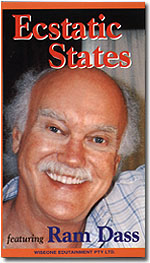|
|
|||||||
Wiseone Edutainment P/L presents videos and audios on leading edge knowledge and discoveries about the body and mind. The information is designed to be educational, entertaining, inspirational and of great practical benefit to anyone on a personal development, psychological or consciousness path. |
|||||||
|
|||||||
|
Postal Address: P.O. Box 25, Rose Bay, NSW, 2029, Australia Office Address: Rear 580 Old South Head Rd. Rose Bay, NSW, 2029, Australia Ph: +61 2 9371-3933 Fax: +61 2 9371-7099 All enquiries and feedback: Please email the producer of this series, Dr John Coroneos at [email protected] |
|||||||
 The Voice Dialogue Series
The Voice Dialogue Series